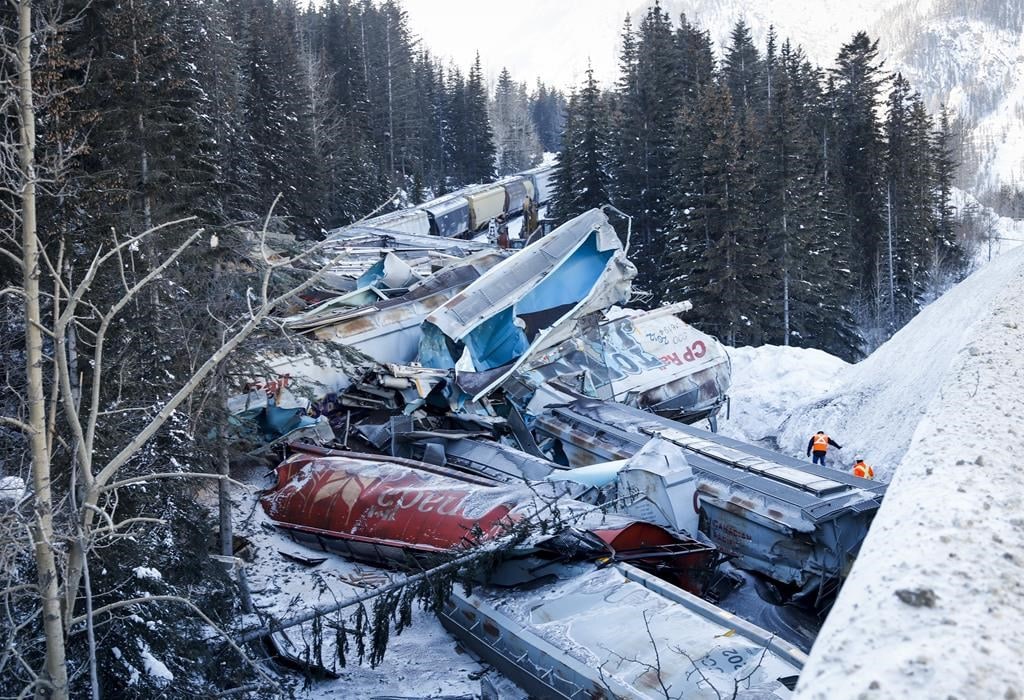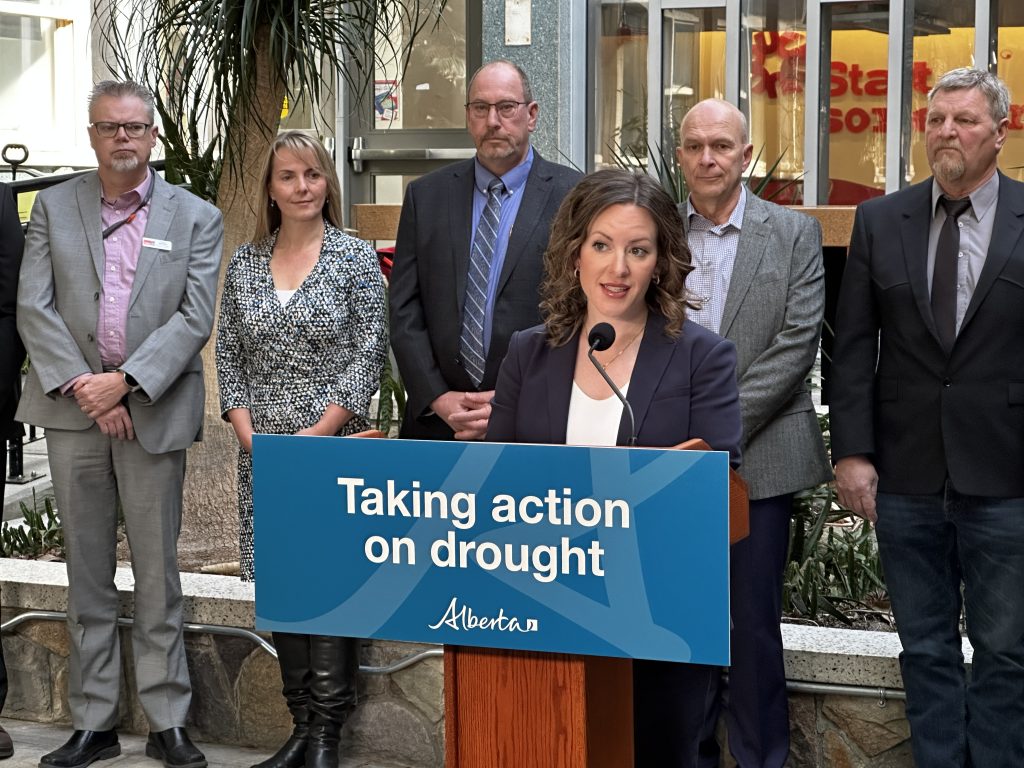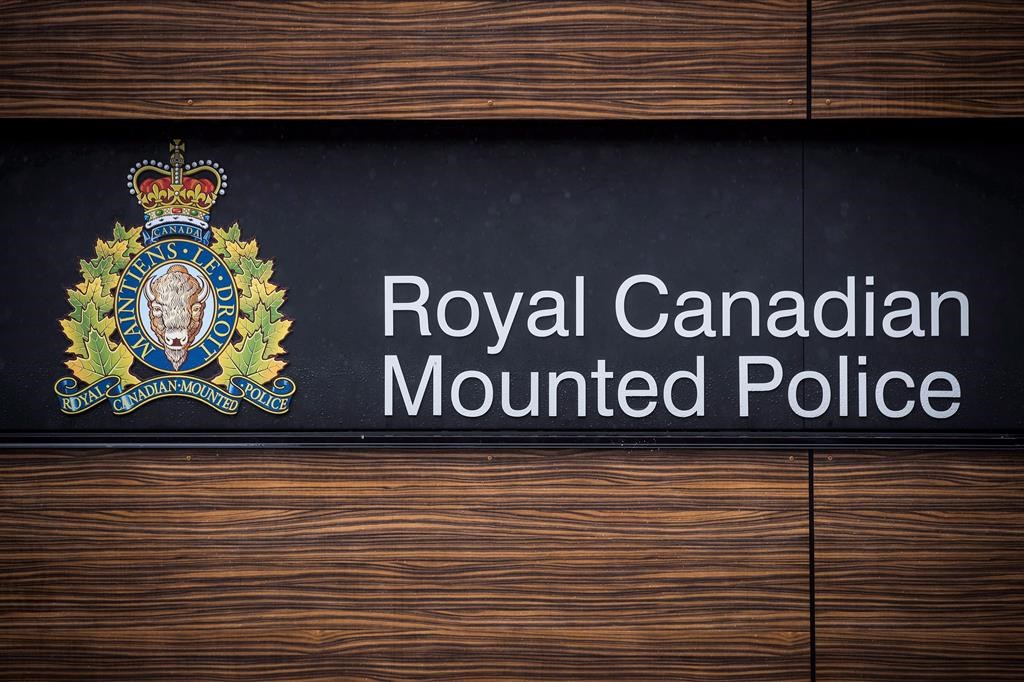Field, B.C. train derailment: Cold weather, old equipment focus of TSB report

Posted Mar 31, 2022 8:03 am.
Last Updated Mar 31, 2022 1:35 pm.
Air leaks on aging brake cylinders, exacerbated by cold temperatures, appear to be the main cause behind a fatal train derailment near Field, B.C. three years ago, a Transportation Safety Board report has found.
The TSB released its final findings on Thursday, saying more needs to be done to ensure utmost safety when it comes to cold-weather train operations in mountainous territory.
“This tragic accident demonstrates, once again that uncontrolled movements of rolling stock continue to pose a significant safety risk to railway operations in Canada,” said TSB Chair Kathy Fox.
Three Canadian Pacific Railway employees were killed when 99 grain cars and two locomotives plummeted off a bridge near the southeastern B.C. community, along the Alberta boundary, in February 2019.

Three people were killed in the 2019 train derailment near Field, B.C. Pictured from left to right are Daniel Waldenberger-Bulmer, Andrew Dockrell and Dylan Paradis. (Courtesy GoFundMe)
Previously, the TSB had said the westbound train was parked on a grade with its air brakes on when it started rolling on its own. The train gained speeds far above the limit for the mountain pass. The handbrakes were not applied and the train barrelled along for three kilometres before derailing at a curve in the tracks, the board added.
In its report unveiled Thursday, the TSB says its investigation found the freight cars’ brake cylinders “were leaking compressed air, a situation made worse by their age and condition.”
It goes on to say that “exposure to extreme cold temperatures over time” also added to this situation, adding “it was determined that after being stationary on the hill for around 3 hours, air leakage reached a critical threshold and the brakes could no longer hold the train on the steep grade.”
https://twitter.com/Tommy_Slick/status/1509566078204084226
Despite observing “indications of brake system anomalies,” the locomotive engineer and trainmaster did not recognize them as problematic, the TSB’s final report notes.
“Additionally, because the situation was the first emergency stop, critical factors were not considered, and only the pressure retaining valves were applied, rather than the retaining valves and hand brakes,” the report reads, in part. “In this instance, the trainmaster’s training and experience did not adequately prepare him to evaluate the circumstances or to make the decision he was tasked with.”
The TSB has outlined three recommendations for Transport Canada as a result of its probe.
They include establishing enhanced testing standards and requirements for brake cylinder maintenance on freight cars that operate on steep slopes in cold temperatures, similar to the conditions near Field. The recommendations also urge Transport Canada to require all railways to schedule installation of automatic parking brakes on freight cars, prioritizing those that are used to transport bulk commodity in mountain grade territory.
Related articles:
-
Transport minister orders trains to use handbrakes after deadly derailment near Field, B.C.
-
CP reopens mainline after fatal train derailment in Field, BC
Finally, the TSB recommends Transport Canada require CP Rail “demonstrate that its safety management system can effectively identify hazards arising from operations using all available information, including employee hazard reports and data trends, assess the associated risks; and implement mitigation measures and validate that they are effective.”
The derailment prompted a criminal investigation by the RCMP, which is ongoing.
-With files from Tom Ross and The Canadian Press










